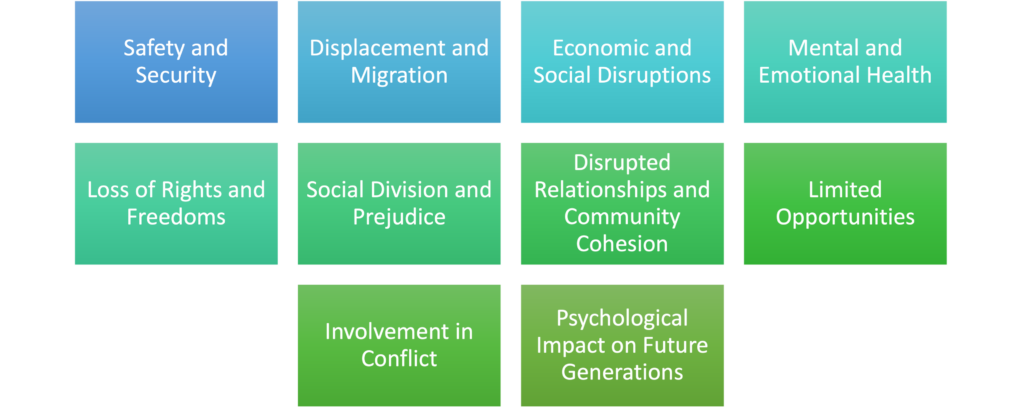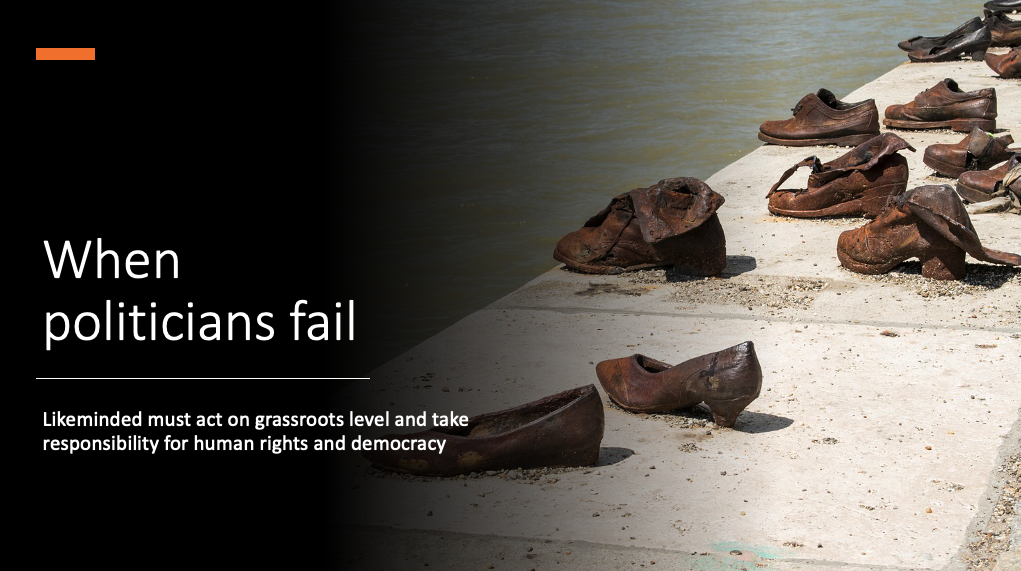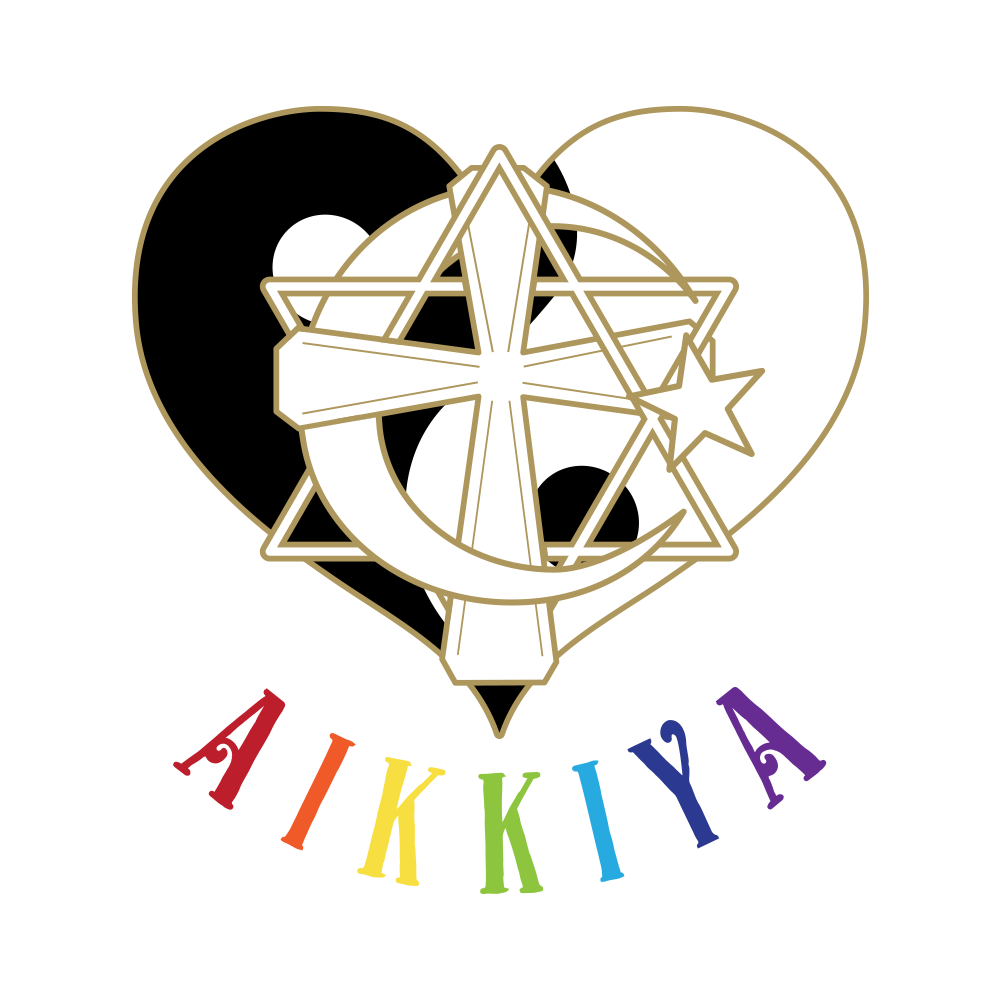Consequence's / Individual Impact
The impact of unrest on individuals is characterized by a loss of safety, security, opportunities, and well-being, highlighting the urgent need for peacebuilding, conflict resolution, and the promotion of stability and security worldwide.
The world’s unrest, characterized by conflicts, social tensions, political instability, and other forms of turmoil, can have a significant impact on individuals in various ways:
Safety and Security:
Unrest can jeopardize the safety and security of individuals. It can lead to violence, crime, and the breakdown of law and order, creating an environment of fear and uncertainty.
Displacement and Migration:
Unrest often triggers forced displacement and mass migration as individuals and communities seek safety and refuge in more stable regions or countries. This can disrupt lives, separate families, and expose individuals to further challenges and vulnerabilities.
Economic and Social Disruptions:
Unrest can disrupt economies and social systems, leading to job losses, economic instability, and reduced access to essential services such as healthcare, education, and basic amenities. This can have a direct impact on individuals’ livelihoods, well-being, and quality of life.
Mental and Emotional Health:
Living in an environment of unrest can take a toll on individuals’ mental and emotional well-being. Constant exposure to violence, fear, and uncertainty can lead to stress, anxiety, trauma, and other psychological effects.
Loss of Rights and Freedoms:
Unrest may result in the erosion of basic human rights and freedoms. Individuals may face restrictions on their freedom of expression, assembly, or movement, undermining their autonomy and stifling their ability to participate in decision-making processes.
Social Division and Prejudice:
Unrest can exacerbate social divisions, deepen existing prejudices, and fuel discrimination based on factors such as ethnicity, religion, or political affiliation. This can lead to increased marginalization, exclusion, and conflicts within communities.
Disrupted Relationships and Community Cohesion:
Unrest can strain relationships and fracture community cohesion. Disagreements and tensions arising from differing opinions or perspectives on the causes or solutions to unrest can create divisions among friends, families, and neighbours.
Limited Opportunities:
Unrest can limit opportunities for personal growth, education, and career advancement. Disrupted infrastructure, unstable institutions, and a lack of resources or access to opportunities can hinder individuals’ ability to fulfill their potential and achieve their aspirations.
Involvement in Conflict:
In some cases, individuals may become directly involved in the unrest, either voluntarily or involuntarily. They may be forced to take sides, participate in violent acts, or become victims of violence, further perpetuating cycles of unrest and endangering their well-being.
Psychological Impact on Future Generations:
The impact of unrest can extend beyond the present generation, affecting the psychological well-being and development of future generations. Experiences of trauma, displacement, and violence can have long-lasting effects on individuals and their families.
It is important to note that individuals’ experiences of the world’s unrest can vary depending on their specific circumstances, geographical location, and socio-economic factors. However, overall, the impact of unrest on individuals is characterized by a loss of safety, security, opportunities, and well-being, highlighting the urgent need for peacebuilding, conflict resolution, and the promotion of stability and security worldwide.

Ongoing in Democratic societies
Far rightwing parties evolving in Europe
Remember

Aikkiya -
Voices for peaceful diversity
Global movement against violent extremism
4 Core Values
- Respect different conceptions of life and lifestyles
- Stand united against all forms of violent extremism
- Cooperate across religious boundaries and pre-conceived opinions
- Recognize United Nation’s Human Rights Convention
Purpose
- Defend basic democratic principles across all political span’s
- Bridge the difference gaps
- Find common denominators on grassroots level
- Strengthen the civil courage in society
(Democratic principles accordingly with UN´s conventions of Human Rights and CRC)
Vision
A worldwide community to show the force of diversity together

